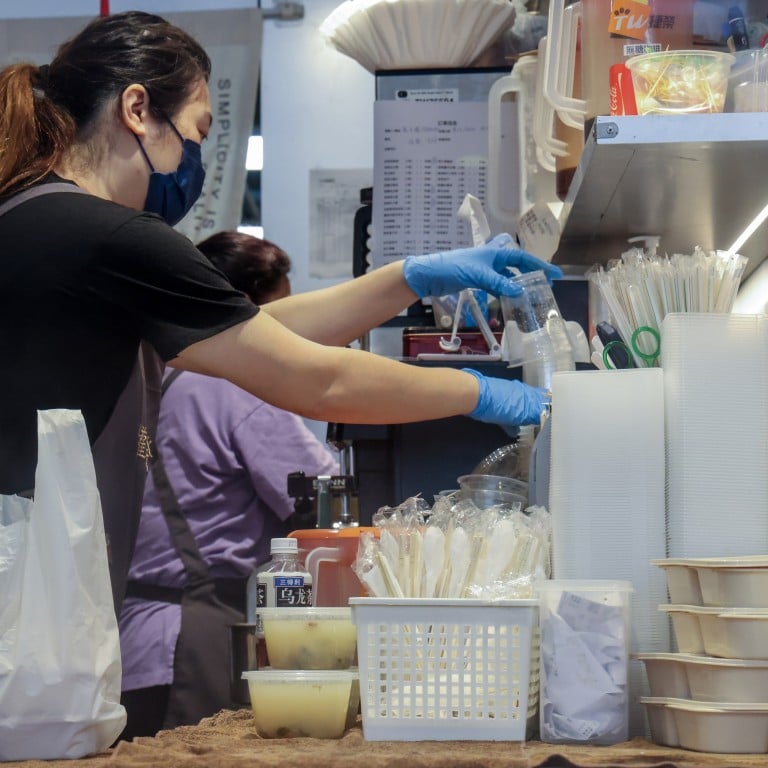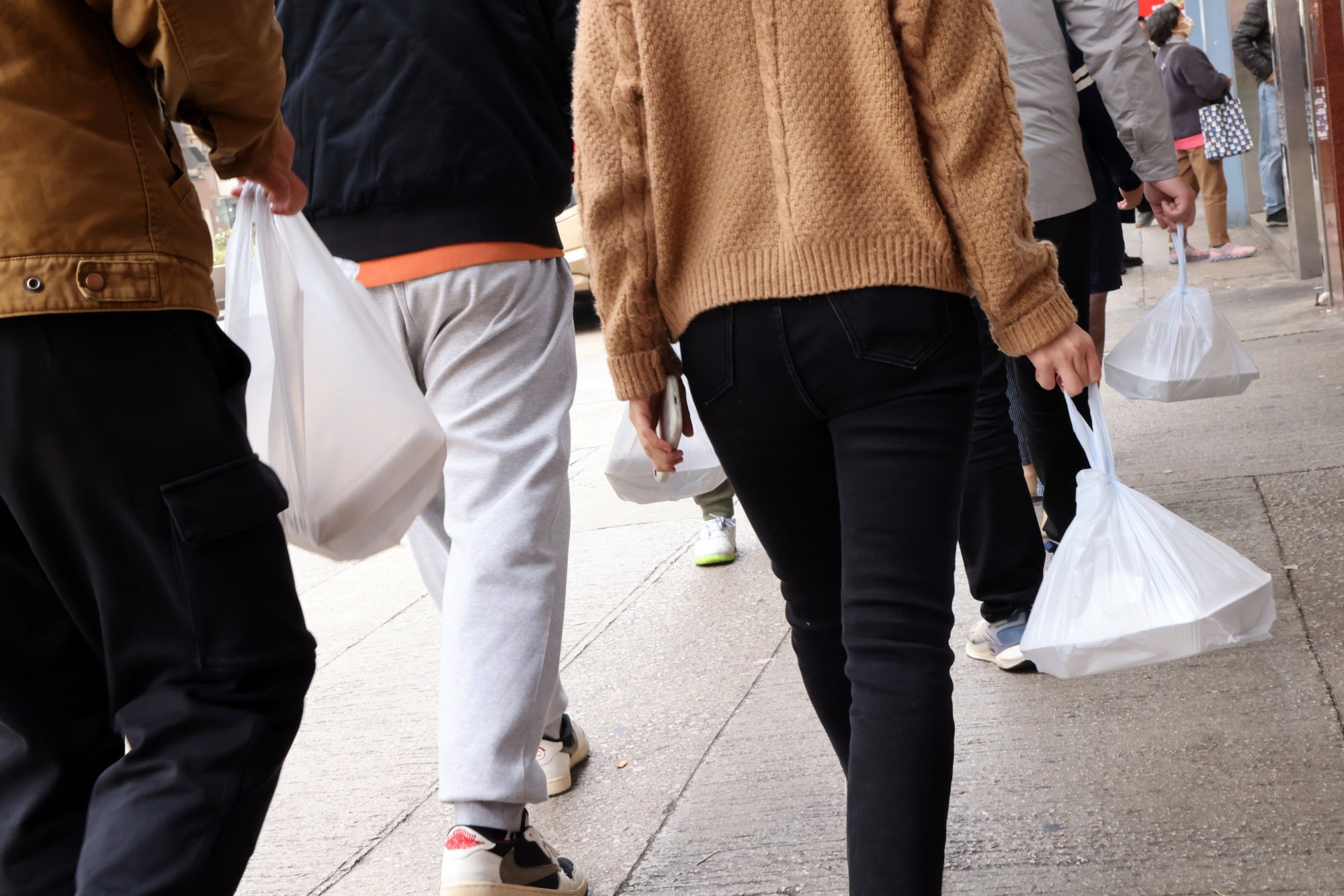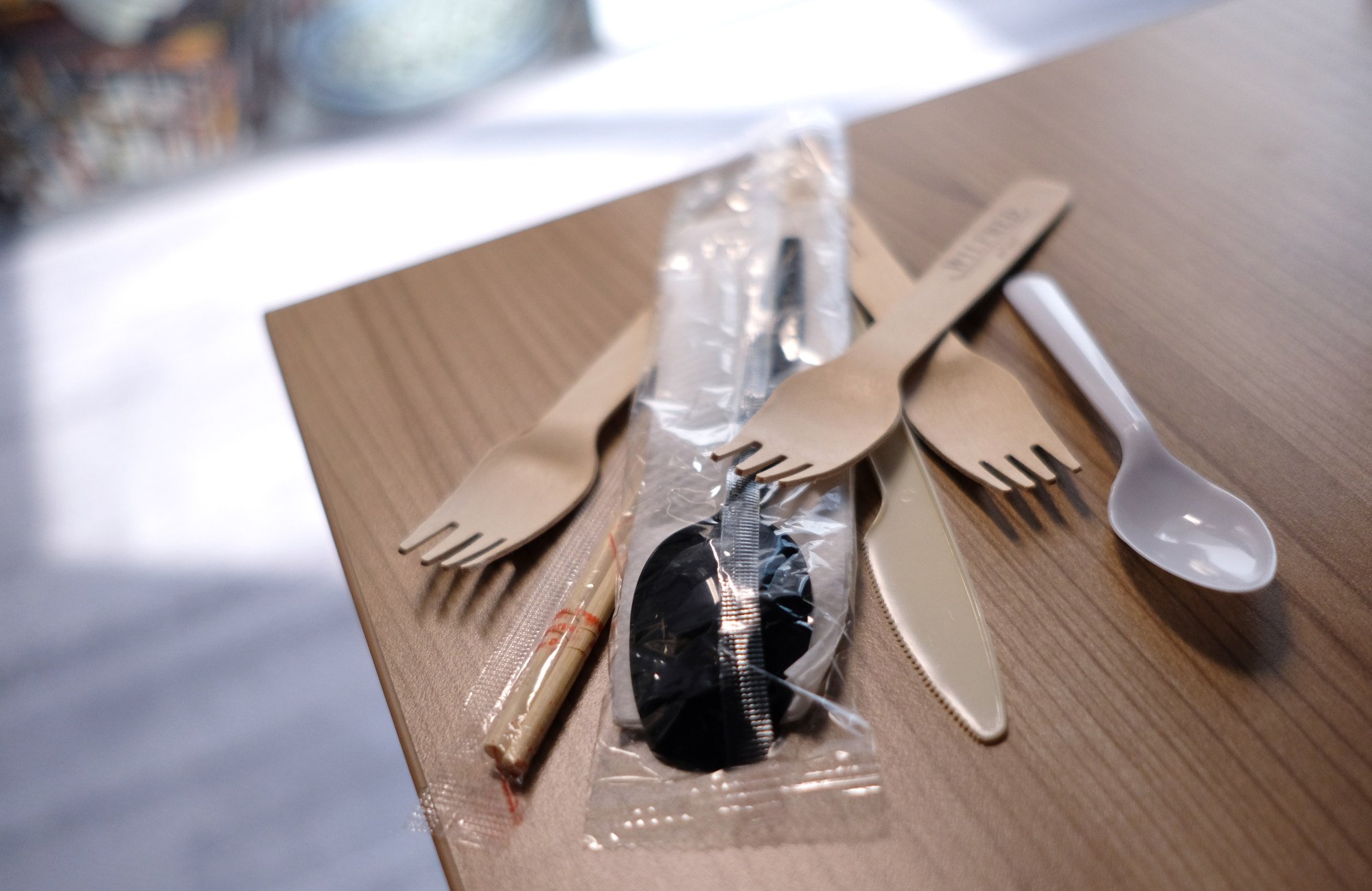
Explainer | Plastic not fantastic: is Hong Kong ready for ban on throwaway items starting next month?
- Government to post warnings at immigration checkpoints and hotels to remind travellers to have their own hygiene products, such as razors, because of the ban
- Styrofoam containers to be outlawed, but other types of disposable food containers will still be available
The catering trade will also be forbidden to provide dine-in customers with single-use plastic cups and boxes.
The handout and sale of items such as glow sticks, thunder sticks and plastic-stemmed cotton buds will also be barred.
The Post has summed up how different sectors in the city have prepared for the ban and what areas people should pay attention to.
1. Can you use your own containers for takeaways?
Environmental authorities launched a bring-your-own-containers scheme last September to encourage restaurants to accept customers’ own boxes or cups when they order takeaway food and drink, or to offer reusable container lending services to customers.
A check by the Post on the scheme’s official website on Thursday found that about 470 restaurants had joined the scheme, only a fraction of the close to 13,000 in the city.
Simon Wong Kit-lung, the honorary president of the Institute of Dining Professionals, said the scheme was unpopular and few customers had brought their own boxes.
He explained many restaurant items were pre-made and pre-packed and it was difficult for them to work around anything outside their standard operating procedures.
“It is still manageable if just several people bring their own boxes,” he said. “But the efficiency will be lower if everyone does that.
“You don’t want your fast food to turn into slow food.”
Wong added hygiene was another potential pitfall because containers supplied by customers might be contaminated and introduce germs and bacteria into restaurant kitchens.
“The legal risk is too huge,” he said. “We can’t afford food poisoning.”

2. How will diners be affected?
Restaurants will still be able to put food or drinks in throwaway plastic containers for takeaway orders after the ban comes into force, but they cannot be made of styrofoam.
They will also not be allowed to include single-use plastic cutlery, drink stirrers and straws in takeaway orders.
Wong said the catering industry had told authorities they could not control consumer behaviour, especially when they ordered takeaway food, but later decided to have the meal at the restaurant.
He added that restaurants might put up signs to remind customers not to eat their takeaway food in the dining areas to avoid problems.
“Customers should also understand the ban so we won’t fall foul of the law,” he said.
‘Hong Kong public, firms lack education on coming ban on single-use plastics’
3. How are retailers phasing out plastic items such as cotton buds?
The sale and handout of plastic-stemmed cotton buds, plastic toothpicks, party hats and thunder sticks will be forbidden.
Environmental authorities explained the ban could be imposed without difficulty because alternatives made of paper, wood or bamboo were “widely available on the market”.
A check of online shopping sites on Thursday found that city personal care chains Mannings and Watsons appeared to have stopped selling plastic-stemmed cotton buds and plastic toothpicks.
The cotton buds available were made of paper and said to be 100 per cent biodegradable. Wooden toothpicks were also on sale.
A box of 200 cotton buds was priced at HK$9 (US$ 1.15) on Mannings’ site on Thursday. The same product was on sale for HK$14.90 in the Watsons online store.
Supermarket chains Wellcome and ParknShop online also labelled their cotton buds as 100 per cent made of paper. They were on sale for HK$11 and HK$25.90, respectively.

4. What are the options for keeping your wet umbrella on rainy days?
The ban has also outlawed the sale of disposable umbrella covers or offering them at no charge. Many online platforms, such as Amazon and HKTV Mall, have started to sell reusable umbrella bags, with some only having one of the items left.
Prices range between US$7.89 and US$16.59, excluding shipping and handling.
Outerwear and other waterproof clothing have been trending over recent years, with prices ranging from HK$150 to more than HK$2,600.
Some brands have said their products are created with recycled materials, such as rubber or nylon.
80% of Hong Kong restaurants not ready for disposable plastics ban
5. Are there any changes in hospitality arrangements at the city’s hotels?
Hotels will not be able to provide free plastic items, such as toothbrushes, throwaway razors, nail files, single-use combs, shower caps, bottles of water or toiletries.
Caspar Tsui Ying-wai, the chief executive of the Federation of Hong Kong Hotel Owners, said many of the city’s hotels had instead started to offer shampoo, conditioner and body wash in larger-sized press bottles.
Some hotels had also installed water dispensers for guests, he added.
A Post reporter observed some hotels had started providing drinking water in glass bottles or putting large bottles in rooms so guests could refill them using filtered taps.
“There are still some items that we find hard to source, such as razors,” he said. “Instead, we will charge our guests a small amount of money if they need a new razor.
“We may no longer offer shower caps because it is difficult to find an alternative.”
Tsui revealed that the government would put up signs at immigration checkpoints and hotels to remind travellers to provide their own personal hygiene products, such as razors, in light of the ban.
6. What are the penalties for breaching the ban?
According to the Product Eco-responsibility Ordinance, businesses that breach the ban could be hit with a maximum fine of HK$100,000.
A fixed-penalty system will be also introduced, where enforcement officials will be able to issue HK$2,000 tickets to retailers or people in charge of catering premises who break the rules.
There will be a half-year grace period after the ban comes into force on April 22.
But authorities earlier warned they would use enforcement powers even during the grace period if repeated advice was ignored.
